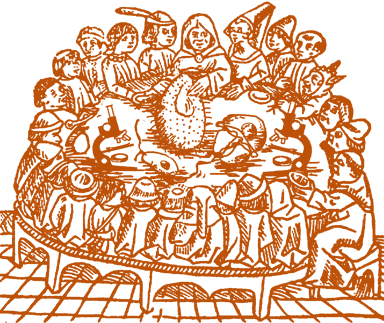THE MAGAZINE
by George Clifford
The historical roots – at least the mythical if not the factual version – of the Thanksgiving holiday in the US are widely known. Pilgrims fleeing religious persecution in England immigrated to the rocky shores of what would become Massachusetts. These pilgrims would not have survived without the assistance, especially gifts of food and agricultural instruction, which they received from the natives. Thanksgiving for these pilgrims, as for many in subsequent observances of the holiday, believed their perceived blessings to be God’s gifts.
Today, describing our perceived blessings as God’s gifts increasingly rings hollow among believers in God, agnostics, and atheists. Scripture reminds us that the rain falls indiscriminately on both the just and the unjust. That is, good and bad things happen to everyone and are not special blessings intended for a select few. We more accurately attribute the pilgrims’ perceived blessing of a bountiful harvest to help from their neighbors than to God’s direct intervention.
More broadly, belief that God is responsible for everything that happens is diminishing among believers and rejected in principle by atheists. For example, positing God’s direct control of everything that occurs problematically makes God responsible for evil as well as good. In short, Thanksgiving’s underlying premise that the good things we enjoy in life come from God whom we rightly thank for blessing us is increasingly suspect if not dismissed as erroneous.
Concurrently, the continuing urbanization of the US population distances people from having a personal appreciation for Thanksgiving as a harvest festival.
Yet, in spite of the erosion of the historical reasons for celebrating Thanksgiving, the feast remains popular. Attendance at religious and communal Thanksgiving services has precipitously declined as have the number of people who self-identify as religious. Nevertheless, families and friends persist in gathering annually at Thanksgiving, often travelling great distances at considerable cost to attend.
Thus, Thanksgiving is a feast that invites rethinking. Proposed below are an alternative reason to give thanks to one another if not to God and an ethical imperative that observing the feast of Thanksgiving can strengthen.
First, give thanks to those we love and those who love us. These relationships give life meaning. Believers appropriately include God among those we love and those who love us. Believers and non-believers appropriately express their gratitude to family and friends whom they love and by whom they are loved. Important expressions of gratitude include spending time together, sharing a special, festive meal together, and verbalizing why a mutual relationship is life enhancing. Observing Thanksgiving celebrations over the last several decades suggests that numerous people have already shifted from a theocentric feast to a feast that celebrates the important persons in their lives.
Second, reinterpret Thanksgiving’s traditional harvest imagery in terms of contemporary ecological concerns. Thanksgiving is an excellent opportunity to renew our commitment to caring for the earth and most life forms that dwell on the earth. Giving thanks for most life forms is more honest than giving thanks for all life forms, e.g., I personally find it impossible to give thanks for mutant cells that cause cancer, bacteria and viruses that cause severe suffering or death, etc.
The Church as well as the US presently lack an annual, widely observed festival focused on ecological concerns. Although Earth Day has gained some traction, it falls far short of Thanksgiving’s enduring popularity. Reinterpreting Thanksgiving in ecological terms is an excellent opportunity to heighten awareness and to strengthen our commitment to safeguarding the earth and most of its life forms. Ideally, families and friends who gather to share a Thanksgiving meal might develop a new tradition of engaging in an ecological action in addition to current traditions of watching televised parades and football games, playing pickup football games, and shopping.
These two reasons for rethinking Thanksgiving broadly overlap. Illustratively, a prime reason for protecting the environment is to preserve opportunities for future generations to live rich, fulfilling lives.
Rethinking Thanksgiving will require the Church to rework its Thanksgiving liturgies and observances to emphasize giving thanks to those we love, receiving thanks from those who love us, and living as stewards responsible for caring for creation. Rethinking Thanksgiving will better align the feast with what is already occurring while preserving links to the holiday’s historical origins.
George Clifford, a priest in the Diocese of Hawai’i, served as a Navy chaplain for twenty-four years, has taught ethics and the philosophy of religion, and now blogs at Ethical Musings. His most recent article is “Making the Ethereal Earthly: A New Definition of the Human Spirit,” in the Journal for the Study of Spirituality, Vol. 5, No. 2, (October 2015), pp. 113-127.

